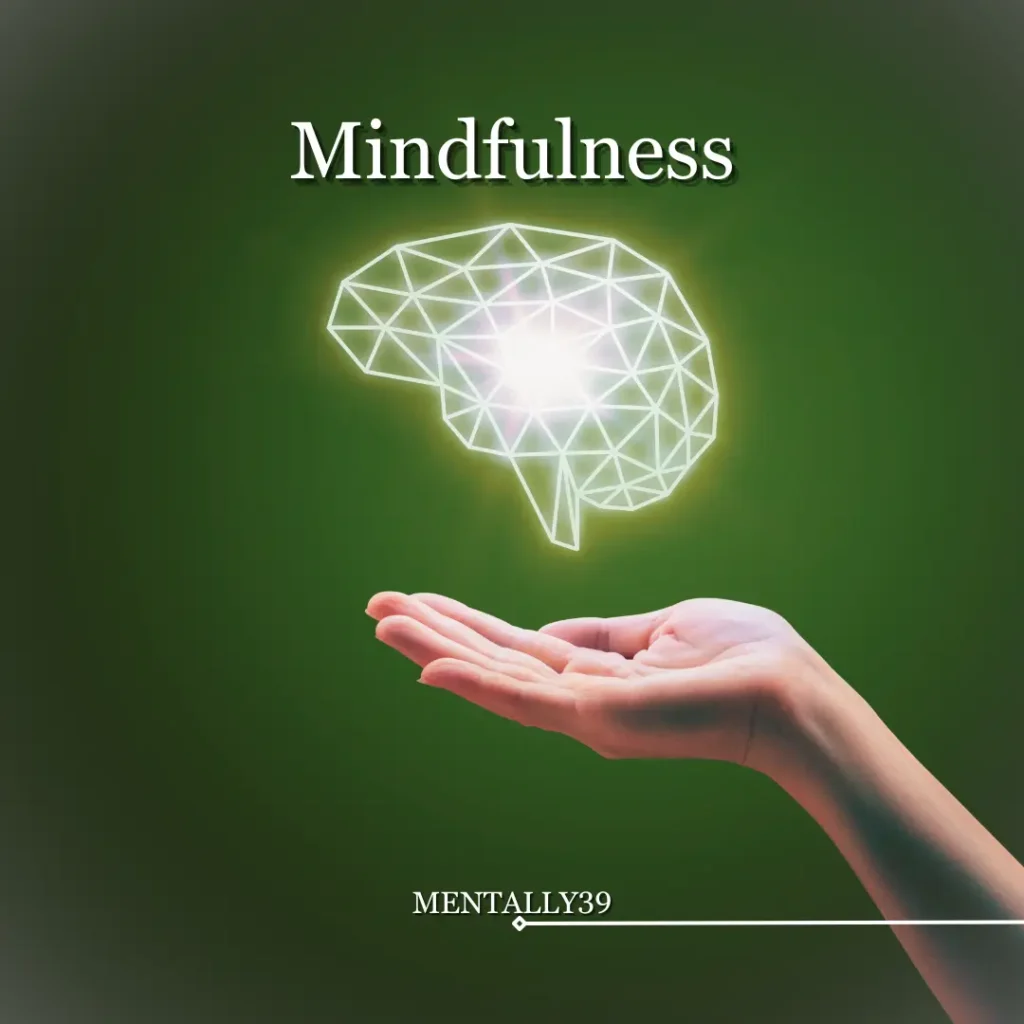Have you ever thought about why so many people practice mindfulness these days? What is so appealing about this ancient practice that has caught the attention of millions around the world? Is there any scientific proof that mindfulness can genuinely improve your overall well-being?
Studies have indicated that mindfulness can help reduce stress, manage anxiety, depression, improve health and well-being, and increase your ability to cope with challenges. But what is mindfulness, and how can it have such a profound impact on your life?
Why practice mindfulness? It’s actually quite simple. It helps stress, anxiety, depression, mental and physical wellbeing, and a slew of other issues we all face on a daily basis.
Table of Contents
Key Takeaways:
- Practicing mindfulness can help reduce anxiety and handle stress and depression better.
- Mindfulness may improve health and well-being and increase your ability to cope with challenges.
- Mindfulness is all about being fully present in the moment and paying attention without judgment.
- Mindfulness has its roots in ancient traditions but can be adapted and incorporated into modern life.
- Mindfulness can be practiced in various aspects of daily life, not just during meditation.
Why Practice Mindfulness? To Stay in The Moment
Mindfulness is a practice that can change your life by helping you focus on what is happening right now. It is easy to worry about the future or regret the past, but mindfulness can teach you to be present in the now, where life really happens.
You can develop a deep sense of awareness and clarity by paying attention to your thoughts and feelings without judgment. Another example is mindful eating, paying attention to your food, the taste, texture, and pleasure we receive while eating.
Incorporating mindfulness exercises into your daily routine can have remarkable benefits. It can help you feel better and ease stress by allowing you to control your thoughts and feelings healthier and more effectively. Remember, mindfulness is about paying attention to the present and being fully engaged in it.
Cultivating Mindfulness in Daily Life
Mindfulness is not limited to meditation sessions alone; its real power lies in how you apply it to your everyday activities. Here are some practical ways to cultivate mindfulness in your daily life:
- Stay present: Focus on the task at hand and engage fully in what you are doing. Appreciate the colors, sounds, and sensations of the current moment.
- Breathe mindfully: Take deep, conscious breaths throughout the day, allowing yourself to connect with the rhythm of your breath and bring yourself back to the present.
- Practice body scan: Take a few moments to consciously scan your body from head to toe, noticing any tension or sensations. This can help you connect with your physical body and bring awareness.
Practicing mindfulness doesn’t require any special equipment or considerable time commitment. All it takes is a willingness to be present and a commitment to practice regularly.
Enhancing Mindfulness Skills
Like any skill, mindfulness can be developed and strengthened with regular practice. Consider a course or program if you’re looking for more on why practice mindfulness.
- Participate in a mindfulness program: Join a mindfulness program or workshop to receive guidance and support from experienced teachers.
- Engage in mindfulness training: Take part in mindfulness courses, which provide structured lessons and exercises to enhance your mindfulness skills.
- Practice trait mindfulness: Aim to integrate mindfulness into various aspects of your life, making it a natural and effortless way of being.
By investing time and effort into developing your mindfulness skills, you can unlock the transformative power of mindfulness and experience its profound effects on your well-being.
The Benefits of Mindfulness for Mental Health
It has been reported that mindfulness makes handling mental health issues easier. Research on mindfulness has found that it can be effective in treating depression and improving overall well-being.
Mindfulness helps people manage their thoughts and emotions by improving alertness and focus. This enables individuals to understand their inner experiences better and respond to them more skillfully.
Mindfulness-based therapy is based on Buddhist meditation practices and can help people with anxiety, depression, and post-traumatic stress disorder. Meditation techniques are used during therapy; people may attend mindfulness retreats or participate in mindfulness programs.
The effects of mindfulness can provide mental health benefits. Studies suggest that mindfulness meditation can alleviate symptoms of depression and anxiety, improve attention and focus, and enhance emotional well-being. I was skeptical till I really tried it for several weeks, and I could tell the difference in my depression symptoms.
What are the Benefits of Mindfulness for Mental Health
- Reduces symptoms of depression, anxiety, and post-traumatic stress disorder (PTSD)
- Improves emotional well-being and overall mental well-being
- Enhances attention, focus, and cognitive abilities
- Reduces rumination and negative thinking
- Promotes self-compassion and acceptance
- Helps manage stress and enhances resilience
Overall, practicing mindfulness has the potential to significantly improve mental health and contribute to a more balanced and fulfilling life. By incorporating mindfulness into our daily routines, we can harness its transformative power and experience its many benefits.

Mindfulness Helps Physical Health
Mindfulness is not only valuable for your mental health but also has a positive impact on your physical well-being. Numerous studies show that practicing mindfulness can reduce the symptoms of various physical conditions and improve overall health.
One benefit of mindfulness is its ability to lessen stress. One study found that mindfulness can help lower blood pressure and manage heart disease. By adding mindfulness into your daily routine, you can experience a greater reduction in stress levels, which in turn can positively impact your physical health.
If you suffer from chronic pain, mindfulness and meditation training can help you manage your discomfort. These practices can alleviate the pain associated with chronic pain conditions. By utilizing mindfulness, you can become more aware of your body and better cope with physical discomfort.
Another area where mindfulness can make a difference is sleep. Research suggests that mindfulness can improve sleep quality and help with insomnia. Using mindfulness techniques before bed, such as deep breathing and body scan exercises, promotes relaxation and creates the ideal conditions for a restful night’s sleep.
Practicing mindfulness can lessen symptoms of digestive disorders, such as irritable bowel syndrome (IBS). Studies have shown that mindfulness-based stress reduction techniques positively impact individuals experiencing gastrointestinal difficulties. If you’re like me, when I am stressed, my gut really flares up. Doing these calming techniques has lessened my gastro issues
Mindfulness extends beyond stress reduction and physical discomfort. Mindfulness can also contribute to weight management and maintaining healthy blood sugar levels. More research suggests that individuals who participate in mindfulness have a better relationship with food, increased self-awareness, and a reduced likelihood of emotional eating. By developing mindfulness and body awareness, you can develop a healthier and more mindful approach to eating, leading to better weight management and blood sugar control. Additionally, mindfulness has been shown to improve heart health by reducing systolic and diastolic blood pressure, making it a valuable practice for those at risk for high blood pressure and heart disease.
Mindfulness Exercises for Physical Well-being:
- Decreases stress levels
- Manages chronic pain
- Improves sleep quality
- Alleviates gastrointestinal difficulties
- Supports weight management
Mindfulness may lessen stress, manage chronic pain, improve sleep, alleviate gastrointestinal difficulties, and support weight management. By incorporating mindfulness into your daily routine, you can experience the physical benefits of mindfulness and achieve a greater overall well-being.
Benefit of Mindfulness in Daily Life
Mindfulness is not just a practice for meditation sessions; it can be incorporated into various aspects of your daily life. Many people who practice mindfulness report that it helps them stay present and engaged in their daily activities.
Here are some mindfulness techniques that you can integrate into your routine:
- Awareness of Your Breath: Focus on your breath for a few moments throughout the day. Notice the sensation of each inhale and exhale, fully immersing yourself in the current moment.
- Focus on Your Senses: Engage your senses in the moment. Pay attention to the sights, sounds, smells, tastes, and textures around you. Fully experiencing each moment can bring you a sense of peace and grounding.
- Staying Fully Present: Mindfulness is about being fully present in the here and now. Avoid getting lost in thoughts about the past or worries about the future. Instead, focus on what you are doing and the people you are interacting with.
To be more mindful throughout the day and improve your well-being, try adding mindfulness tactics to your daily routine. Remember, mindfulness isn’t about being perfect. It’s about accepting and being kind to yourself and others in the present here and now.
Mindfulness Programs and Training
If you want to deepen your mindfulness practice, consider enrolling in a mindfulness class or training. These programs can provide guidance and support as you develop a regular mindfulness practice.
- Expert Guidance: Mindfulness courses are led by experienced instructors who can provide you with valuable insights and techniques to enhance your practice.
- Community Support: Engaging with a community of like-minded individuals can offer encouragement and motivation on your mindfulness journey.
- Structured Learning: Mindfulness classes often follow a structured curriculum, allowing you to progress and build upon your mindfulness skills over time.
Whether you choose a formal program or prefer to explore mindfulness alone, the key is to integrate mindfulness into your thoughts, actions, and interactions with others. By cultivating mindfulness in daily life, you can experience the transformative benefits it offers for your mind, body, and spirit.
Mindfulness in the Workplace
Mindfulness has gained recognition for its potential benefits in the workplace. Employers are increasingly integrating mindfulness into their wellness programs to promote the health and well-being of their employees.
- Mindfulness-based cognitive therapy and mindfulness exercises can help employees manage stress, enhance focus and productivity, and improve overall job satisfaction.
- Mindfulness can be a valuable tool for reducing workplace stress and creating a supportive and positive work environment.
By including mindfulness practice in the workplace, organizations can foster employee well-being and contribute to a healthier, more engaged workforce.
Discover the power of mindfulness in the workplace and see how it can help you and your team thrive.

Mindfulness in Education
Mindfulness has emerged as a valuable tool in educational settings, transforming the way schools and universities approach student development and well-being. By including mindfulness strategies, training programs, and curriculums, educational institutions enable students and educators to discover the diverse uses of mindfulness.
Mindfulness training makes students better aware of themselves and others. I have observed how my students handle peer pressure and testing anxiety in a much healthier way once I showed them some simple calming strategies.
The Positives of Practicing Mindfulness in Education
- Improved Focus: Mindfulness can really help students develop their ability to stay present in the classroom, enhancing their focus and concentration on learning.
- Enhanced Self-Regulation: Students develop self-awareness and self-regulation skills by exercising mindfulness, enabling them to effectively navigate their emotions and thoughts.
- Lowered Stress: Mindfulness equips students with tools to manage stress and anxiety, creating a more supportive and harmonious learning environment.
- Increased Overall Well-being: Regular mindfulness practice fosters greater emotional resilience, empathy, and overall well-being among students.
The Impact of Mindfulness on Academic Performance
Integrating mindfulness in education goes beyond well-being; it significantly influences academic performance and overall student success. By engaging in mindfulness, students develop essential skills that directly contribute to their educational growth and attainment.
- Coping with Academic Challenges: Mindfulness helps students build resilience and adaptability, enabling them to cope with the demands and pressures of academic life effectively.
- Improving Learning Experience: By cultivating mindfulness, students become more engaged, attentive, and open-minded, creating a conducive environment for deep learning and critical thinking.
- Promoting Positive Interactions: Mindfulness fosters empathy, compassion, and effective communication, fostering a positive and inclusive learning community.
The Role of Mindfulness Training
To fully harness the benefits of mindfulness in education, schools and universities are implementing mindfulness training programs for students and educators. These programs provide guidance and support in developing a regular mindfulness practice and integrating mindfulness methods into everyday academic life.
- Empowering Students: Mindfulness provides students with practical tools to apply mindfulness in academics, personal growth, and social interactions.
- Supporting Educators: Mindfulness can improve educators’ well-being and resilience, enabling them to create a supportive and empathetic classroom environment.
- Cultivating a Positive Learning Environment: Regular mindfulness exercises can cultivate a positive and mindful culture within educational institutions, benefiting the entire learning community.
By embracing mindfulness in education, students are empowered with essential life skills that extend far beyond the classroom. Mindfulness enables them to navigate challenges, cultivate well-being, and unlock their full potential as lifelong learners. As educational institutions continue to embrace mindfulness through programs such as Mindful Schools and other evidence-based online programs, a transformational shift towards holistic development and academic excellence is achieved.
Mindfulness is a powerful practice that can make a big difference in your life. Including mindfulness in your routine has many benefits, like reducing stress, managing anxiety and depression, and improving physical health and focus.
Research shows that the practice of mindfulness, including mindfulness meditation and therapy, can have a positive impact on both physical and mental health. It has been found to help with depression, stress, anxiety, insomnia, memory loss, hypertension, and chronic pain, as well as slowing down cognitive decline and boosting immune function.
By adding mindfulness into your daily routine, you can positively change the structure and function of your brain, specifically in the brain regions involved in memory, learning, and emotion, leading to a better you in recent years.
Additionally, mindfulness has been shown to have a positive impact on academic performance, specifically in memory performance and cognitive flexibility, by reducing psychological distress and improving overall well-being, including psychological symptoms such as stress, anxiety, and depression, particularly in college students.
By incorporating mindfulness into your daily routine, such as mindful breathing exercises and body scan meditations, you can learn to manage stress more effectively and cultivate greater peace and clarity. Mindfulness-based stress reduction programs have also been shown to be highly beneficial in promoting mental health and well-being.
The benefit of mindfulness is that it helps you understand your thoughts, emotions, and physical sensations. Focusing on the present moment and observing your experiences without judgment can teach you more about how you think and act. This can help you make better choices and live a more satisfying life, including in your relationships. To be mindful means to pay attention to what is happening in the mind, body, and immediate environment and to remain present while both curious and compassionate.
Mindfulness is not complicated and can be improved with basic meditation practices, including different types of meditation that help you become more aware of your thoughts, feelings, and body sensations. This can lead to greater wellbeing and mental clarity, and an increased ability to care for both yourself and others, making it a vital tool for academic success, emotional intelligence, relationship satisfaction, and discovering new ways to improve your overall well-being.
I hope you have answered the question of why practice mindfulness, quite simply it works. Be kind to yourself, and start practicing mindfulness today.

20+ Years as a Special Education Teacher
NASM Certified Nutrition Coach,
Certified Trauma Informed Trainer
Mindset and Motivation Master Life Coach
